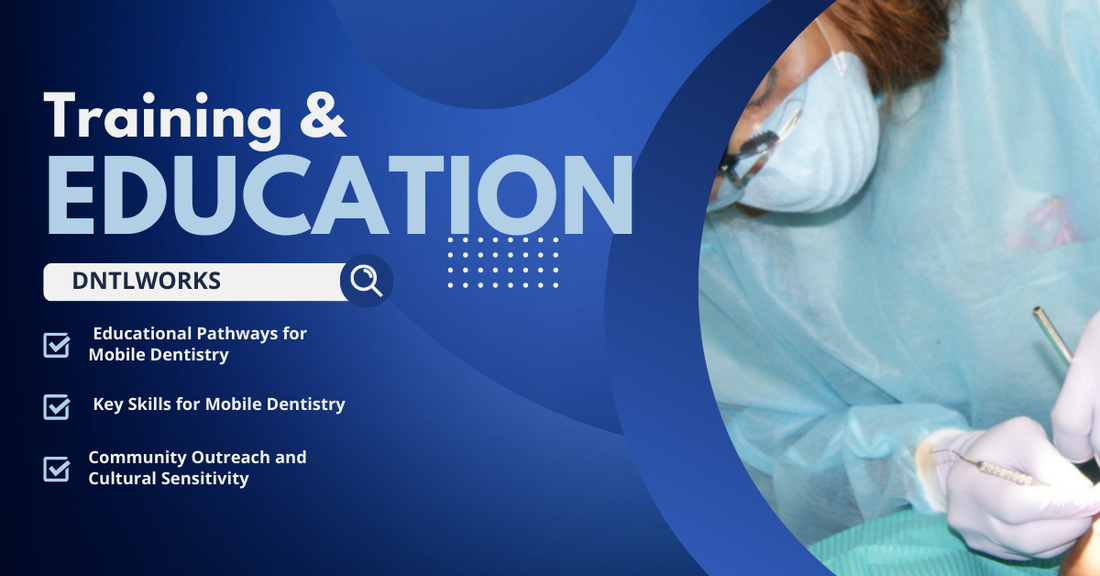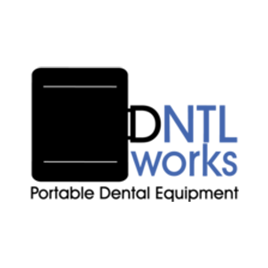
Training and Education for Success in Mobile Dentistry
Share
Mobile dentistry is revolutionizing how dental care is delivered, but it requires a unique set of skills, knowledge, and adaptability. Whether you’re a recent graduate or an experienced dentist looking to expand into mobile services, proper training and continuous education are essential. In this guide, we’ll cover educational paths, key skills, and best practices for becoming a successful mobile dental provider.
Why Specialized Training for Mobile Dentistry?
Mobile dentistry involves delivering dental care in non-traditional settings—schools, community centers, senior facilities, or rural areas. Since mobile dentistry differs from in-office practice, training in areas like portable equipment usage, logistics, patient care, and community outreach is crucial.
Fun Fact: In recent years, mobile dentistry has expanded by over 20%, with a growing demand for skilled professionals in community health programs, rural outreach, and school-based dental services!
1. Educational Pathways for Mobile Dentistry
There are several pathways to gain the knowledge and experience required for mobile dentistry. Here’s an overview:
Dental School and Residency Programs
Many dental schools offer courses or special electives focused on community health, mobile dentistry, and public health. If your school has partnerships with outreach programs, take advantage of these opportunities to gain real-world experience.
Continuing Education (CE) Courses
Continuing education is a valuable way for practicing dentists to gain specialized training. Many CE courses are available online, in person, or as part of conferences, covering topics like portable equipment use, mobile patient management, and preventive care.
Community Health Certifications
Certifications like the Certified Public Health Dentist (CPHD) or similar programs can provide specialized knowledge in public health and community care, which are crucial for successful mobile dentistry.
2. Key Skills for Mobile Dentistry
Mobile dentistry requires a blend of clinical and logistical skills that differ from those in a traditional office setting. Here are some of the essential skills to focus on:
Portable Equipment Proficiency
Using portable equipment effectively is essential for mobile dentistry. Training should cover proper setup, maintenance, and troubleshooting of portable units. This equipment includes portable suction, compressors, water systems, and sterilization tools.
Patient Management in Non-Traditional Settings
Mobile dentistry often involves treating patients in less-controlled environments. Skills like patient communication, adaptability, and handling anxiety in unusual settings are crucial. Patient education and preventive care tips are also integral to mobile services.
Community Outreach and Cultural Sensitivity
Mobile dentistry often serves diverse populations. Being culturally sensitive, understanding community needs, and fostering trust are important skills for successful outreach. Community-specific training programs can help prepare you to work effectively in various cultural and social settings.
Key Skills for Mobile Dentistry
Takeaway: Developing strong patient management, equipment skills, and community outreach capabilities is vital for successful mobile dentistry. These skills help dentists provide effective, compassionate care in various settings.
3. Hands-On Experience: Volunteering and Outreach Programs
Volunteering with community health programs is an excellent way to gain hands-on experience in mobile dentistry. Many organizations provide opportunities for dental professionals to serve underprivileged communities, both domestically and internationally.
- School-Based Programs: Provide preventive care and oral health education to children in schools, where mobile dentistry is often a primary source of care.
- Senior Facilities: Treating older adults in assisted living facilities or senior centers helps build experience with mobile setups and geriatric dentistry.
- Rural and Remote Clinics: Community health centers in remote areas often rely on mobile dental services to reach underserved populations.
4. Continuing Education Opportunities
Continuing education is key to staying updated with the latest advancements and best practices in mobile dentistry. Here are a few ways to access specialized training:
Webinars and Online Courses
Online courses allow you to learn about mobile dentistry at your own pace. Platforms like the American Dental Association (ADA) and DentalPost offer webinars on portable equipment, community health practices, and patient management in mobile settings.
Professional Conferences
Attending dental conferences can connect you with industry experts, manufacturers of portable equipment, and peers who share your interests. Many conferences offer hands-on workshops and presentations dedicated to mobile and outreach dentistry.
Certification Programs
Some institutions offer certification programs specifically for mobile dentistry and community health. Look for programs that cover a mix of clinical skills, patient communication, and logistical planning to develop a well-rounded skill set.
5. Best Practices for a Successful Mobile Dental Practice
Applying your training and skills in mobile dentistry is all about planning and flexibility. Here are some best practices to help you succeed:
- Develop a Pre-Visit Checklist: Create a checklist for equipment, supplies, and tools to ensure you’re prepared for every patient and location.
- Maintain Your Equipment Regularly: Portable equipment requires consistent maintenance to stay in optimal condition. Clean and inspect units regularly to avoid downtime.
- Adapt to Each Environment: Be prepared to modify your setup and approach based on the space, lighting, and available resources at each location.
- Emphasize Preventive Care: Use mobile dentistry as an opportunity to educate patients on preventive oral health practices, especially in communities with limited access to regular care.
Conclusion
Mobile dentistry offers a rewarding way to expand access to care, but it requires specialized skills and ongoing education to do well. By investing in training, developing key skills, and gaining hands-on experience, you’ll be prepared to provide quality dental care in diverse, underserved communities. Keep following our blog for more tips and resources on expanding your skills in mobile dentistry!
